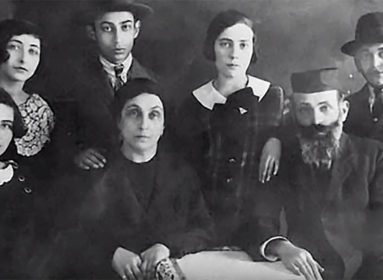
By Judy Lash Balint/JNS.org
In July 2014 in Jerusalem, sirens over the city at the beginning of the 50-day Gaza war forced the cancellation of the outdoor opening event of the Jerusalem International Film Festival. The festival went on despite several schedule changes and film celebrities who were last-minute no-shows, but the usual festive atmosphere was distinctly muted.
This year, the July 9-19 festival was not without controversy, but bore none of last year’s tensions, with both the opening and closing events drawing large crowds at the Sultan’s Pool venue just below the walls of the Old City.
John Turturro, star of “Mia Madre,” the feature film that opened the festival, told filmgoers, “I always wanted to come to Jerusalem.” The closing event brought together the Jerusalem Symphony Orchestra with Francis Ford Coppola’s classic, “The Godfather,” as the orchestra performed Nino Rota’s music to an appreciative audience.
This year marked the 32nd annual Jerusalem Film Festival, an event that has assumed a prominent place in the international film festival circuit and become a 10-day hub of cinematic activity that highlights the dynamic Israeli film scene.
Most of the 230 films showcased during the festival were screened in and around the Jerusalem Cinematheque in the Hinnom Valley before an international crowd of guests that included renowned film critics, producers, directors, and actors, who could be seen mingling and talking shop in the gardens between screenings.

The Jerusalem International Film Festival’s founder, the late Lia Van Leer (second from left), is pictured at the 2012 festival. The 2015 festival included a tribute to her. Credit: Judy Lash Balint.
Cinematheque co-founder and longtime film festival director Lia Van Leer died earlier this year at age 90, and a moving tribute evening during the festival attracted hundreds who remembered her charismatic presence and persistence in trying to make the Cinematheque open to all in Jerusalem.
The most controversial movie of this year’s festival, and a film that was protested by both right and left within Israel’s contentious cultural landscape, was “Beyond The Fear,” a documentary about the personal life of Yigal Amir, who is serving a life sentence in prison for the assassination of former prime minister Yitzhak Rabin.
Israeli Minister of Culture and Sport Miri Regev wanted the film scrapped from the festival lineup and threatened to slash government support for the festival unless the film was removed. Others who protested the film were former president Shimon Peres and opposition leader Member of Knesset Isaac Herzog (Zionist Union). In a compromise, the film was eventually shown twice at a separate nearby venue the day before the festival opened. Both screenings were sold out.
“Beyond the Fear” was nowhere to be seen in the awards ceremony. The Van Leer Award for Best Documentary Film went to Silvina Landsmann’s “Hotline,” which highlights the work of the Hotline for Refugees and Migrants in Tel Aviv.
Winner of the Haggiag Competition for Full-Length Israeli Feature was Avishai Sivan’s “Tikkun,” set in the haredi community. The film tells the story of a young religious man who goes through a near-death experience and emerges a different person.
The Israel Critics’ Forum Award for Best Feature Film went to Tova Ascher’s “AKA Nadia,” filmed in Jerusalem and London. Ascher is a renowned Israeli film editor, and “AKA Nadia” is her first feature film.
The Audience Award went to Doron Paz and Yoav Paz’s “JeruZalem,” a creative horror movie set in the Holy City that will have its official world premiere at the Fantasia International Film Festival in Canada.
In addition to hosting film screenings, the Jerusalem festival is an opportunity for Israeli filmmakers to both promote their completed works and try to obtain funding and attention for their works in progress. This year, 11 projects competed in the festival’s “Pitch Point” sessions in front of a prestigious international jury that included American producer Ira Deutchman, Serb producer Miroslav Mogorovic, and Karni Ziv, head of Israel’s Keshet Media Group.
On the lighter side, in collaboration with the Jerusalem Municipality, the festival offered free screenings under the stars in several locations in the Old City, with the emphasis on fantasies, family-friendly films, and action films. At the nearby First Station recreational area, nightly free showings of classic Israeli films were a popular feature of this year’s festival.
Many festival attendees dive into the event’s catalog as soon as it’s published and have trouble whittling down their film choices. For some, like Adina Mishkoff Kischel, the process is a real marathon—she told her Facebook friends that she had bought tickets for 30 films over the course of the 10-day festival.
Now that the curtain has closed on this year’s festival, what will next year bring? Many more options for film buffs like Kischel to choose from—and perhaps a new controversy to boot.
CAP: The Jerusalem Cinematheque and Sultan’s Pool just below the walls of the Old City, the venue of the annual Jerusalem International Film Festival. Credit: Judy Lash Balint.







 Southern New England Jewish Ledger
Southern New England Jewish Ledger












